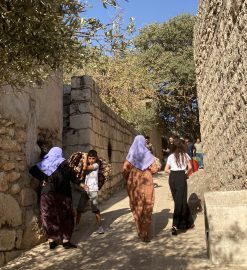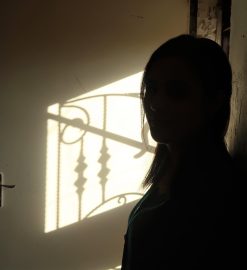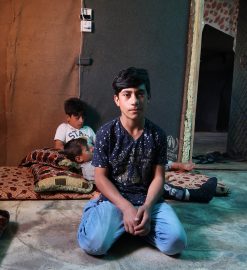Blast from the past for Egyptian dissidents
Written for Al Jazeera
Cairo, Egypt – Omar Assaf was dragged from his house by a dozen armed Egyptian special forces at 2am. The 30-year-old financial analyst – a father of three young children – was hauled off to prison last month wearing only shorts and T-shirt. Nobody knew what happened to him.
“My family went to all the prisons in Cairo to provide him with clothes, money and food. Police officers told them the same story over and over again – that he was not there,” Omar’s sister Aya Assaf told Al Jazeera. “They didn’t want us to help him.”
She said Omar had received strange phone calls weeks before his arrest. An unidentified man threatened to hand him over to police if he didn’t give him money. Omar, who has no criminal record and is respected in his community, decided to ignore the threats.
“After that incident, gunmen came to his house to arrest him. My brother lives in our family house near the Rabaa al-Adawiya sit-in and he went down one time. Like many others, he disapproved of the crackdown by the army, but is that a legitimate reason to jail him?”
Last Saturday, Omar’s mother went to the district attorney, where she finally found out her son had been transferred to Tora prison. “When she visited him, she also heard horrible stories from families of tortured prisoners,” Aya Assaf said.
When Egyptians revolted against former president Hosni Mubarak in 2011, it reflected their unhappiness with government corruption and police brutality. Many Egyptians are now receiving the same treatment after Mohamed Morsi’s ouster amid a series of violent incidents and arbitrary arrests.
Deadly clashes
More than 50 people were killed Sunday in protests against the coup on the 40th anniversary of the country’s war with Israel. About 420 people were arrested, the Interior Ministry said.
Since the July 3 coup in Egypt, at least 3,000 people have been detained, and about 2,200 remain imprisoned, Amnesty International reported. Many detainees have not been charged with a crime, including leaders of the Muslim Brotherhood and their supporters, but also journalists and those angry at the military takeover.
Scores of detainees have been deprived of their basic legal rights, such as medical care or access to lawyers, said Amnesty, also reporting that some 250 people have been secretly held in Cairo’s Al-Salam Central Security Forces camp.
“Amnesty is concerned that among those arrested are men and women who were merely exercising their right to freedom of expression and assembly by protesting in support of the ousted former president,” Amnesty said.
Prime Minister Hazim el-Beblawi denied last month that politically motivated detentions were under way in the country. A state of emergency was necessary to tackle “acts of terror and violence”, he said.
Deadly attacks against police and soldiers continue, and there was also an assassination attemptagainst Egypt’s Interior Minister Mohammed Ibrahim. Beblawi said the state of emergency would be removed as soon as possible.
“The army, police and the people are together hand in hand,” army chief Abdel Fattah el-Sisi tolda crowd of several thousand celebrating the war anniversary on Sunday. “We will protect Egypt, the Egyptian people and the will of Egyptians.”
Beating bearded prisoners
Mohamed Shaby, 27, was arrested two days after an attack on pro-Morsi protestors in mid-August. When he and his friends were on their way back home from Heliopolis, where the protests took place, a group of young Egyptians stopped their car. They ordered them out of the vehicle, checked their ID’s, searched the automobile, and called the police.
“Officers thanked the thugs and put us in a police car,” Shaby told Al Jazeera. “At the police station we were detained with 27 others. Some of them, like my friends, were doctors and lawyers. Prisoners with beards were beaten up and yelled at by the police officers, while other policemen took pictures of it. It was horrible.”
Shaby, who has no connection with the Muslim Brotherhood, said he suspects his arrest had something to do with his beard. After a conversation with a prosecutor, he was told he had to stay in prison until his trial, although no indication was given when that would be.
“One day they turned off the lights and sprayed pepper gas on us. We couldn’t breathe or open our eyes and our bodies were irritating. We were literary dying,” he said.
“After 10 minutes of torture, one of the officers, who got scared, opened the cell door and asked us to go out. We took our breath and entered the cell again. After two hours, another one came back to beat us.”
After 11 days, Shaby was released by a judge. Some of his friends, however, are still in detention facing serious charges, he said.
‘Just like before’
More than 1,000 people, mostly Morsi supporters, have been killed in political violence since mid-August, according to human rights organisations. The arrests, meanwhile, highlight Egypt’s intensified crackdown on critics of the military since Morsi’s ouster.
The most common allegations against those detained in Egypt are for carrying weapons or espionage. But others are being arrested on the streets for small offenses such as ignoring curfew, chanting slogans against the army, or simply “acting suspicious”.
The police crackdown hasn’t only affected Egyptians. Two Canadians were held for seven weeks by police, but released from prison on Sunday.
John Greyson, a renowned Canadian documentary filmmaker, and Dr Tarek Loubani were arrested during violent unrest in Cairo on August 15. Loubani had treated some wounded protesters at a demonstration that turned deadly and Greyson had filmed it.
They were accused of “participating with the Muslim Brotherhood” in an attack against police, but were never formally charged. The men said they were beaten and subjected to degrading treatment. Their release came after a 16-day hunger strike, and high-level pressure from the Canadian government.
Last month, the 24-year-old French national Nevine Sana was detained for several hours because she broke curfew. Having a French passport “saved” her from spending a night in jail, she said.
“They body searched me, but when they found out I didn’t have any Egyptian papers, they let me go. My Egyptian friend got arrested too. Police officers were shouting at her, even threatening her with virginity tests,” Sana said.
A lot of people in Egypt are living in fear these days, said Sana. “Police officers are brutal and corrupt, just like before. Making sure you don’t give them any reason to arrest you is the only thing you can do.”



Leave a Reply